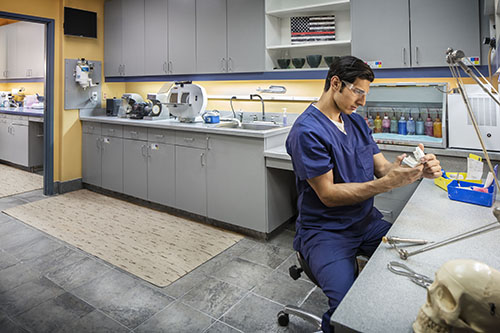
How Is My Workers’ Compensation Premium Determined?
Your workers’ compensation premium is determined by a formula that has three primary elements: 1) the type of business you have, 2) your business’s history of workplace accidents, and 3) the total payroll of your business. The National Council on Compensation Insurance (NCCI), a trade group of the US insurance industry, as well as state agencies such as the Workers Compensation Insurance Rating Bureau (WCIRB), collect and analyze data to help provide reliable and consistent application of this formula among insurance providers and from state to state.
Type of Business
Your business is assigned to an industry-defined hazard group based on the likelihood of an accident occurring in your workplace. A low-risk business such as a professional services firm will have a different hazard group classification than will a higher-risk business such as a construction company. An average cost per injury and fatality is computed for each classification. As you might expect, workplace injuries that take place on a construction site will probably cost more than injuries that take place in an office environment. It is important to be sure your employees are classified correctly, as this directly affects the amount of your workers’ compensation premium.
Accident History
Your workers’ compensation premium is also based on the number of accidents that have occurred in your workplace relative to the average for all businesses of your classification and size. If, during a defined measurement period, your business has fewer workplace accidents than the average, your premium is likely to be lower than the premium paid by a similar business that experienced more accidents than average. The possibility of lower premiums is an inducement for a business to prevent workplace injuries. Workplace safety programs can help you educate employees about safety and keep accidents to a minimum. See more about this on our blog, 6 Ways to Help Improve Workplace Safety.
Total Payroll
The third major influence on your workers’ compensation premium is the total amount of your business’s payroll. The higher your payroll, the more you will pay in workers’ compensation premium. The more employees you have, the greater the chance that someone will experience a workplace injury.
Computing the Premium
Once your business is correctly classified and your accident history is assessed, your business is assigned a rate that takes all of that information into account. This rate is then multiplied by your total payroll to determine your premium.
From time to time, usually when your policy is up for renewal, your insurance provider will conduct a premium audit to identify any changes within your business and evaluate the effect on your workers’ compensation premium. See more about premium audits here.
Workers’ Compensation Needs Assessment
If you are looking for workers’ compensation insurance or feel that you are paying too much for the coverage you have now, contact us for a no-cost assessment of your coverage needs. At EMPLOYERS, we strive to get you the best workers’ compensation insurance for your dollar.
